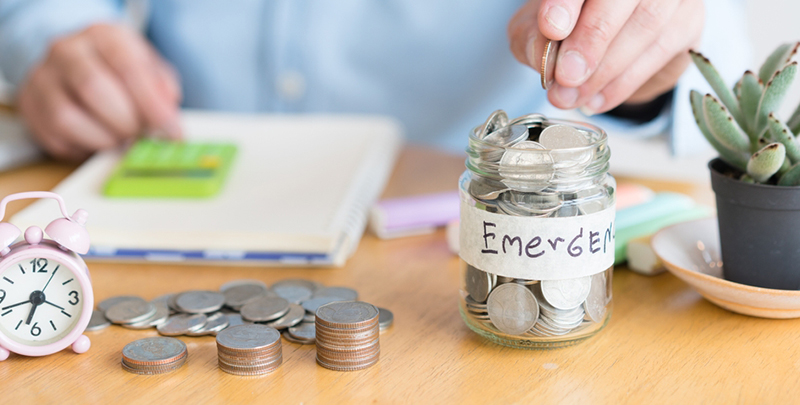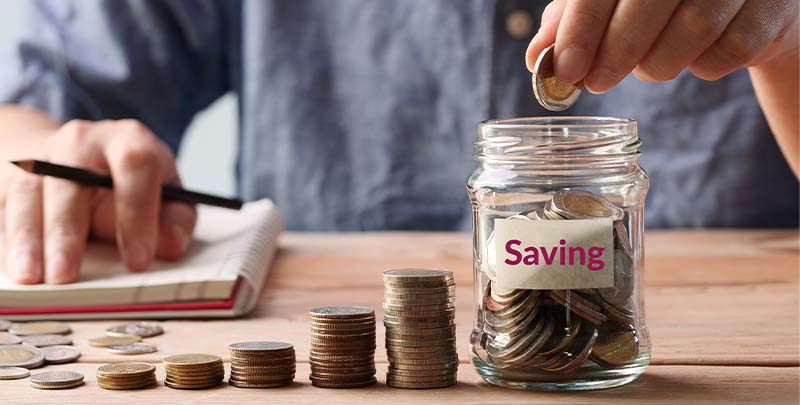- Open digital A/C
Explore 250+ banking services on Axis Mobile App
Scan to Download
- Current Account
- Pay
- Collect
- Trade
Services
Solution for Exporters
- Debt & Working Capital
24x7 Loans
For MSMEs with turnover up to ₹30 Cr
- Treasury
- Transact Digitally
- Home
- Blogs
- Financial Planning Guide
- Emergency fund: Your financial safety net

Financial Planning
Emergency fund: Your financial life-jacket
What are Emergency Funds?
An emergency fund is a contingency that contains your savings set aside only to be used if any unforeseen circumstances arise. It is much like a financial umbrella that is ready to open when rain pours down unexpectedly. Such an emergency fund should cover at least 6-12 months worth of essential expenses such as rent, utilities, groceries, and loan repayments. It’s not meant for planned purchases or yearly holidays.
How Much Should You Save in an Emergency Fund?
You should start with a small goal, and as your income grows, so should your backup fund. Even ₹10,000 when set aside as a contingency, is better than nothing. Gradually, build this up to match your monthly household expenses for at least 6 to 12 months.
Why is an Emergency Fund So Important?
Life is full of surprises. A sudden medical emergency or an urgent family need can pop up at any moment. Without a backup, you might need to dip into savings, delay monthly bills, or even take out high-interest-rate loans.
How to Build an Emergency Fund?
Suppose your monthly expenses, including rent, groceries, bills, and EMIs, add up to Rs 50,000. Ideally, your emergency fund should cover 6 to 12 months of expenses.
That means you should aim to build an emergency fund of Rs 3 lakhs to Rs 6 lakhs.
If you plan to build this over a year, you’ll need to set aside around Rs 25,000 to Rs 50,000 per month, depending on how quickly you want to reach your goal. You can start smaller if needed — the important thing is to begin and stay consistent.
Where to Store Your Emergency Fund?
The best place to hold your emergency fund is in a liquid asset. You need quick access, but don’t touch it for everyday spending. Avoid locking these funds in long-term investments such as PPF or Equity oriented investment products.
- Savings accounts
- Shorter maturity debt mutual funds like liquid funds
- Money market funds
- Ultra-short duration funds
- Fixed deposits
Conclusion
When you set up an emergency fund, it isn’t supposed to be about expecting the worst, it’s about preparing for a safe and financially stable future. In this regard, even if you have to start small, start as early as you can. This will help you make the most of your emergency fund even if you never have to withdraw from it any day.
Disclaimer: This article is for information purposes only. The views expressed in this article are personal and do not necessarily constitute the views of Axis Bank Ltd. and its employees. Axis Bank Ltd. and/or the author shall not be responsible for any direct/indirect loss or liability incurred by the reader for taking any financial decisions based on the contents and information. Please consult your financial advisor before making any financial decision.
Table of Contents
Related Services
Learning Hub
Look through our knowledge section for helpful blogs and articles.
How to determine which Savings Account is right for you?
Thornton T. Munger, a notable research expert in forestry for the U.S...
Tips to save more in 2025: 5 best savings tips
As we step into 2025, you should reflect on your financial goals and make a resolution to save more.
How to open a Jan Dhan Yojana Account? - Step-by-step guide
Jan Dhan Account is a part of Pradhan Mantri Jan-Dhan Yojana (PMJDY)...
Seamlessly update your Bank Account address: A step-by-step guide
When you change your address, whether due to a move or personal reasons...














